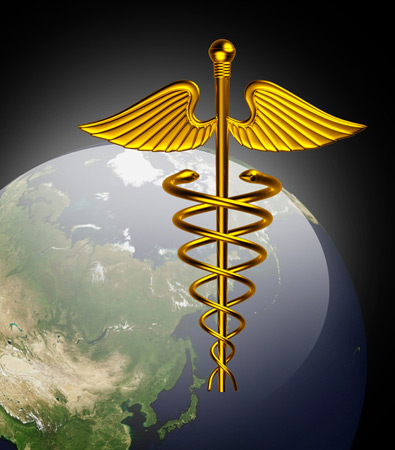Health and Medical: Health Care System
Like most European countries, Italy has a well-developed public health system coordinated by a national health ministry. Italy has an impressively high density of medical practitioners. The World Health Organization’s June 2000 assessment of health systems ranked Italy second from the top of all 190 WHO member countries in overall performance of the health care system. Italian public hospitals must meet quality standards and criteria established by Italian law and are normally equipped for all kinds of emergency services.
Private hospitals do not normally have emergency rooms. To be admitted to a private hospital, it is usually necessary to make arrangements with the hospital’s administration or directly with a doctor affiliated with the private hospital prior to being admitted. Private hospitals normally have higher fees than public hospitals. Patients in private hospitals are generally required to pay fees upfront before leaving the hospital. (Patients with insurance may subsequently seek reimbursement from their insurance companies.) Some private hospitals may be "accredited," which means that fees can be reimbursed by the Italian National Health Service if the patient is an official resident in Italy and affiliated with the National Health System.
Medical facilities may be limited outside urban areas. In parts of southern Italy, the lack of adequate trash disposal and incineration sites has led to periodic accumulations of garbage in urban and rural areas. In some cases, residents have burned garbage, resulting in toxic emissions that can aggravate respiratory problems.
The US Navy initiated a public health evaluation in the Naples area in 2008. After finding levels of bacterial and chemical contamination of potential health concern, particularly in samples of area well water, the Navy recommended all personnel living off-base in the Naples area use only bottled water for drinking, cooking, ice-making, and brushing teeth.
Insurance and Payment
Visitors from EU countries or from Iceland, Liechtenstein, Norway, and Switzerland should obtain a European Health Insurance Card (EHIC) before traveling to Italy, as to any other EU country. The card is available free of charge from the traveler’s national health authority. Presenting the card at the time services are needed allows the traveler to be received on the same basis as a citizen of Italy.
Travelers from non-EU countries must take out traveler’s insurance to avail themselves of Italian state health programs. Travelers are encouraged to obtain insurance that would cover a stay in a private Italian hospital or clinic. It is almost impossible to obtain an itemized hospital bill from public hospitals, as required for example by many US insurance companies, because the Italian National Health Service charges one inclusive rate (care services, bed and board).
For consultations with a doctor and for medications, payment is normally required upfront. It is important to save all receipts for reimbursement. Hospital visits, on the other hand, may or may not be paid for directly by your insurance policy; be sure you know before you travel.
Locating a Doctor
Embassies and consulates generally maintain lists of physicians, dentists, and medical facilities for the benefit of travelers. Also, the International Association for Medical Assistance to Travelers (IAMAT) maintains a database of fully licensed, English-speaking doctors around the world. Office visits are available to IAMAT members at fixed rates advertised on the website, www.iamat.org.
Sources: US Department of State; World Health Organization; European Commission
World Trade Press accepts no liability for statements on this page. Consult your healthcare provider for more information.
Copyright © 1993—2025 World Trade Press. All rights reserved.

 Italy
Italy 
